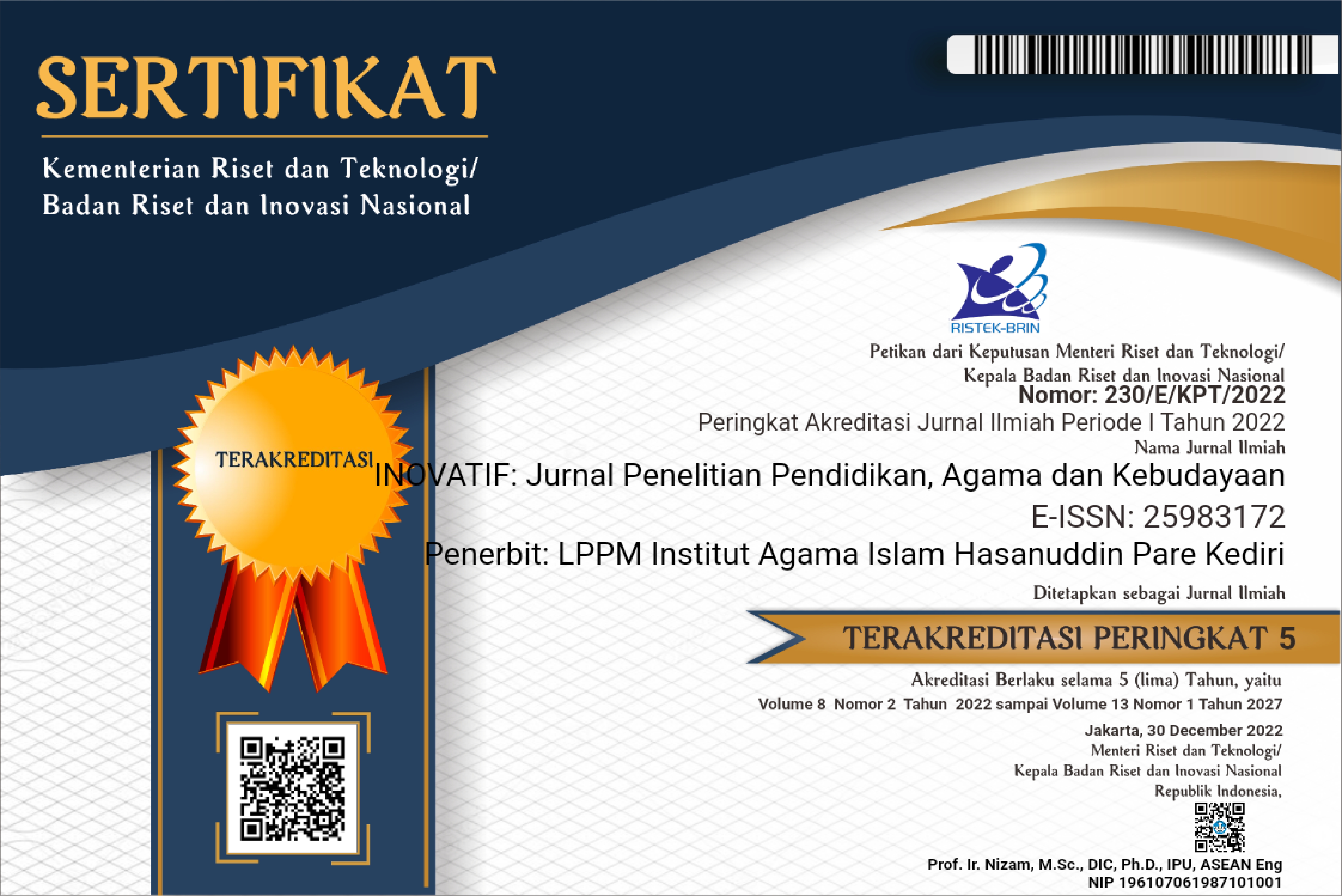Relasi Etika Kerja dan Etos Kerja dalam Islam
DOI:
https://doi.org/10.55148/inovatif.v2i2.59Keywords:
Work Ethic, Islam.Abstract
Business is a highly recommended activity in the teachings of Islam. Lately we encounter phenomena that occur in society such as behavior that deviates from religious teachings, decline in business ethics. Growing symptoms of lack of a sense of solidarity, social responsibility and the level of honesty, mutual suspicion, it is hard to believe in an entrepreneur if it is related for the first time. Less ethical things are often done in the form of cutting rival relationships. If a person has a loyal subscription, then by his opponent is rivaled by offering goods at a cheaper price, sometimes even at a loss. This will result in deadly rivals and self-defeating and totally unethical. Once the importance of trading activities, it is necessary to be studied more deeply about the activities in the trade whether it is in accordance with the guidance of the Prophet good ethics that ultimately gave birth to the work ethic of Islami. One important study in Islam is the issue of business ethics. Ethics is seen as commensurate with morality, morals, and adab (in Arabic). The work ethos is closely related to hard work, diligence, loyalty, communication, decision-making, attitude, behavior, dedication, and high discipline. While the work ethics is closely related to work ethics that pay attention to aspects of morals, ethics, justice, and integrity in creating added value organization. The relation of business ethics and work ethic is very significant because business based on good ethics will give birth to work ethic or good business behavior such as doing lawful and honest business which will be blessed by Allah.
References
Downloads
Published
Issue
Section
License
Please read Copyright Notice for Inovatif: Journal of Research on Religious Education and Culture









